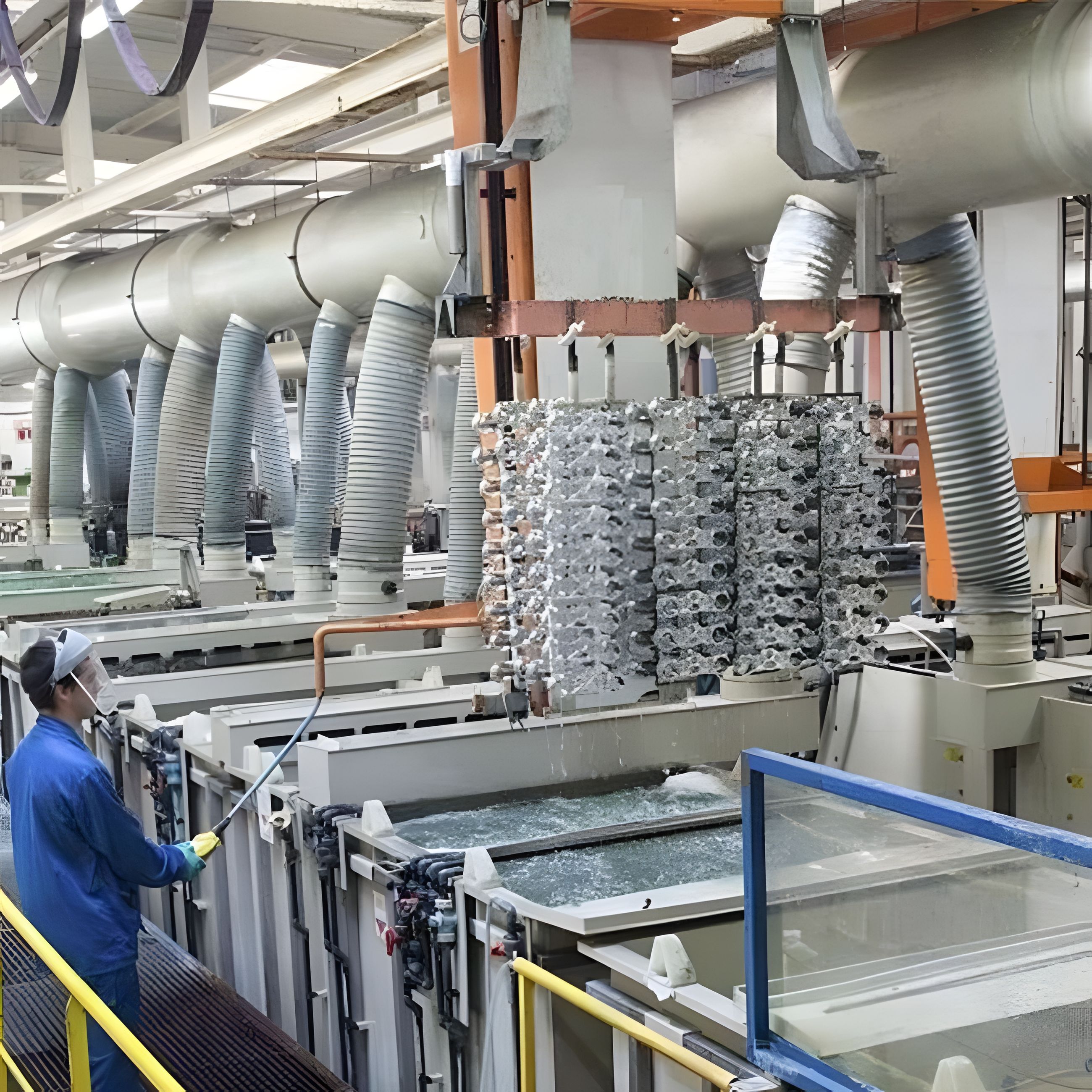Electroplating industry

Electroplating Industry Overview
Electroplating is the process of using electrolytic techniques to deposit metal ions from a solution onto a conductive surface. It is widely used in industries such as electronics, automotive, aerospace, and home appliances to enhance the surface properties of metals, including corrosion resistance, wear resistance, aesthetics, and conductivity. The selection of chemicals used in the electroplating process plays a critical role in determining the quality and efficiency of the plating. Key chemicals like Anhydrous Sodium Acetate, Sodium Acetate Trihydrate, Disodium Hydrogen Phosphate, and Sodium Dihydrogen Phosphate are essential for controlling the plating process, ensuring optimal results and high-quality metal coatings.
Roles of Key Chemicals in Electroplating
1. Anhydrous Sodium Acetate
Function: Used primarily as a buffering agent and pH regulator in electroplating solutions. It helps to maintain a stable pH during the electroplating process, ensuring uniform metal deposition and improving plating efficiency.
Market Advantage: Known for its chemical stability and good solubility, Anhydrous Sodium Acetate is widely used in various electroplating processes, offering cost-effective and efficient solutions for electroplating baths.
2. Sodium Acetate Trihydrate
Function: Serves as a stabilizer in electroplating solutions. It helps to maintain the solubility of metal ions and slow-release acetate ions, which contribute to the stability and consistency of the electroplating bath.
Market Advantage: Sodium Acetate Trihydrate is widely applied in nickel and silver electroplating solutions. It enhances plating quality and extends the service life of electroplating baths, making it a valuable component in the electroplating industry.
3. Disodium Hydrogen Phosphate
Function: Acts as a pH regulator, crucial for controlling the acidity of electroplating solutions. It helps regulate the plating rate and contributes to the uniformity and quality of metal deposits.
Market Advantage: Disodium Hydrogen Phosphate is highly soluble, stable, and cost-effective. It plays a key role in nickel and zinc electroplating processes, making it a widely demanded chemical in the industry.
4. Sodium Dihydrogen Phosphate
Function: Used as an acidifier and stabilizer in electroplating solutions, it enhances the efficiency of metal ion reduction and ensures even metal deposition, resulting in a higher-quality electroplated layer.
Market Advantage: Sodium Dihydrogen Phosphate is indispensable in chrome and copper electroplating, improving the uniformity and corrosion resistance of electroplated surfaces. It is in high demand for these applications in various industries.
Our Export Advantages
Premium Quality Products
Our products, including Anhydrous Sodium Acetate, Sodium Acetate Trihydrate, Disodium Hydrogen Phosphate, and Sodium Dihydrogen Phosphate, meet international quality standards. They undergo stringent quality control processes, ensuring high performance in electroplating applications.Comprehensive Technical Support
We offer full technical support, helping clients select the right chemicals for their specific electroplating needs. Our experienced team provides guidance to ensure optimal electroplating results, with after-sales assistance available for any product-related inquiries.Competitive Pricing
By utilizing advanced manufacturing techniques and efficient production processes, we provide high-quality chemicals at competitive prices, helping clients reduce their production costs and increase their market competitiveness.Global Sales Network
Our products are exported to various countries, and we have built a strong global sales network. We can tailor our products to meet the specific demands of different international markets, offering effective solutions for clients around the world.
Case Studies & Analysis
Case 1: Electronics Industry
In the electronics industry, where electroplating enhances conductivity and corrosion resistance, our Sodium Acetate Trihydrate and Disodium Hydrogen Phosphate have been successfully used in copper and silver electroplating processes. These chemicals helped improve metal surface uniformity and stability, ensuring high-quality coatings and optimal functionality.
Case 2: Automotive Industry
For automotive manufacturing, which requires both aesthetic appeal and corrosion protection, our Anhydrous Sodium Acetate and Sodium Dihydrogen Phosphate have been extensively used in nickel electroplating. These chemicals improved the adhesion and durability of the electroplated layer, prolonging the lifespan of automotive parts and enhancing their performance in harsh environments.
Conclusion
Anhydrous Sodium Acetate, Sodium Acetate Trihydrate, Disodium Hydrogen Phosphate, and Sodium Dihydrogen Phosphate are essential chemicals in the electroplating industry. They regulate pH, stabilize metal ions, and improve the uniformity of metal deposition, all of which contribute to high-quality electroplating results. Our company offers top-notch products, expert technical support, competitive prices, and a robust global sales network, providing effective and reliable solutions for electroplating applications worldwide. We are committed to supporting our customers' success and meeting the evolving needs of the global market.